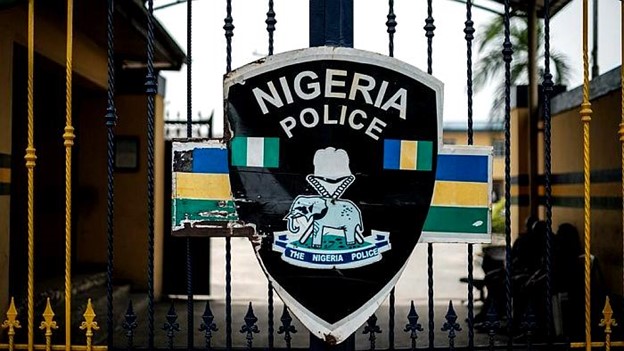[By Nelson Olanipekun ]
Six years ago, I was in the police station to respond to a distress call made by our client to the chambers I worked at. On getting there, an argument ensued between me and the officers; they were determined to perpetuate the illegality I sought to prevent, and as a result, they pushed and dragged me out of their station.
Violations of human rights, assaults, recklessness and extrajudicial killings have long been associated with the police. It is however essential to establish that not all officers are bad, and some officers are doing fantastic work in the pursuit of justice. Many upright officers who are diligent have shown outstanding efforts to keep communities safe. However, the ills that permeate the Nigeria Police Force, such as brutality, indiscriminate killings, arrests, and extortion, undermine the system’s reasonable efforts.

As much as citizens are deeply exposed to human rights abuses, officers of the Nigeria Police are likewise, not invulnerable to human rights violations, most especially in their line of duty. Oftentimes, it comes from their employer and even the citizens they are saddled with the responsibility to protect and serve. They are also victims of unfavourable policies.
According to a police officer interviewed by Team Gavel, “Good welfare is the major challenge. No one regards us, especially, if you are in a lower cadre. We buy everything with our money; money that is not even enough. We buy complaint books and uniforms. The last time I was given a uniform was when I was in Police College.”
This was a statement made by an Inspector who has spent 21 years as a police officer and currently earns about N87,135 monthly. An average police officer earns their salary based on the level or rank. The majority of these officers start their career in the Nigerian Police as constables at grade level 03 with a monthly earning of N43,293.80, which is approximately 75 dollars. After three years or more on the job, an officer only moves to the next level with a N6,000 salary increase.
In a society like ours, the mere appearance of armed police officers is enough to terrify innocent citizens. Indeed, the Nigeria Police Force has faced overwhelming criticism and detestation which is not unconnected to cases of brutality and inhumane dealings of its officers. Nonetheless, the force is made up of humans, people who could do better at their jobs if only the authorities made necessary efforts by way of reforms.
A police officer interviewed by Team Gavel shares his opinion, “I cannot really blame people when they are defensive. They have seen officers mistreat people and they are only scared for themselves. But I can categorically say, if there is improvement in our welfare, the officers will behave better. Although it is not a guarantee because there will always be bad eggs no matter the improvement.”
While it is worthy to note that the use of force by officers of the Nigeria Police is necessary, it should only be proportionate to the perceived harm intended to be caused by a suspect, without brute force and show of terror. The Police Act provides for humane treatment and dignity of all suspects, thus, there are no laws whatsoever justifying the brutality, use of lethal weapons, and reckless behaviour of officers of the Nigeria Police Force to citizens who they are expected to protect.
While the #EndSARS protest was in part, a response to the need for a better police force in Nigeria, a quick examination of the root cause of the age-long problem within the policing system would refer us to a vicious cycle where years of poor welfare and poor remuneration of police officers have sapped officers’ morale.
Only recently, a video emerged showing police officers, many of whom were deployed to Anambra for the just concluded elections, protesting. The aggrieved officers were heard chanting ‘pay us our money’ as they demanded that the N10,000 approved for their feeding, amongst other allowances, be paid immediately.
According to an affected police officer, the officers were “protesting over non-payment of Election feeding allowance. 10,000 naira is the amount for feeding. Meanwhile, over three days now, no accommodation and no food to eat. Many of the junior ranks are stranded in Idemili Ogidi Division where they received 1,500 police personnel from Lagos State.”
These challenges are not limited to serving police officers; even retired police officers are not left out.
Two months ago, retired police officers gathered in front of the National Assembly, Abuja, to drive home their demands for improved retirement benefits. Chief among their requests is for the Nigerian Police to be withdrawn from the Contributory Pension Scheme just as their counterparts in the army and other sister security agencies. The protesting retired officers explained that after 35 years of dedicated service, their monthly take-home is “a transport allowance to the grave.”
One would think that the exacerbating insecurity in the nation would spur the Nigerian government to implement reforms that would boost morale and ensure that the numerous sacrifices as well as occupational hazards these officers go through on a daily basis are at least worth something. Unfortunately, they would rather pay lip service to the long overdue reforms.
As Christmas and the New Year celebrations approach, heralding a possible increase in crime rate, it is still these police officers who are paid a pittance as salary that are tasked with maintaining order and risking their lives to protect citizens. The same officers who lack the required modern equipment, technology and hardware to combat crime and criminality in the country.
These and many other similar plights of men and women tasked with securing lives and property necessitate the call for a total reform of the policing system in Nigeria. Among other things, there is an urgent need for personnel reorientation and retraining for police accountability, if the gap between the police and the citizens will ever be bridged.
‘ 
- Nelson Olanipekun is a Nigerian human rights lawyer, entrepreneur and the Founder & Team Lead of Citizens’ Gavel.

